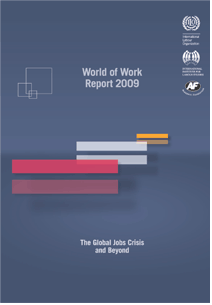 A4
A4

Paperback
•
2008
Pages: 120
ISBN: 9788171887453
For Sale in South Asia Only
INR 995

The first in a new series of ILO reports focusing on wage developments, this volume reviews major trends in the level and distribution of wages around the world since 1995. It considers the effects of economic growth and globalization on wage trends, looking closely at the role of minimum wages and collective bargaining, and suggests ways to improve wage levels and to enable more equal distribution.
Wages are a major component of decent work, yet there is a serious knowledge gap in this increasingly important area which this report begins to address. Part one summarizes the main trends in average wages and distribution of wages, providing a statistical analysis of the links between wages and economic growth, along with wage forecasts for 2008 and 2009. Part two examines the relationship between minimum wage policies and collective bargaining, highlighting the effects of institutions on wage outcomes and the importance of coherent policy articulation. Part three concludes with concrete policy recommendations and identifies key issues for further research. The report includes full technical and statistical annexes.
The International Labour Organization was founded in 1919 to promote social justice and, thereby, to contribute to universal and lasting peace. Its tripartite structure is unique among agencies affiliated to the United Nations; the ILO's Governing Body includes representatives of governments, and of employers' and workers' organizations. These three constituencies are active participants in regional and other meetings sponsored by the ILO, as well as in the International Labour Conference a world forum that meets annually to discuss social and labour questions.
Over the years the ILO has issued for adoption by member States a widely respected code of international labour Conventions and Recommendations on freedom of association, employment, social policy, conditions of work, social security, industrial relations and labour administration, and child labour, among others.
The ILO provides expert advice and technical assistance to member States through a network of offices and multidisciplinary teams in over 40 countries. This assistance takes the form of labour rights and industrial relations counselling, employment promotion, training in small business development, project management, advice on social security, workplace safety and working conditions, the compiling and dissemination of labour statistics, and workers' education.
International Labour Office